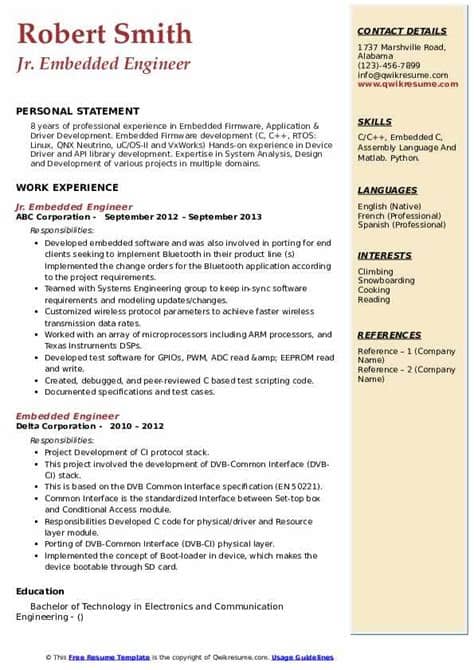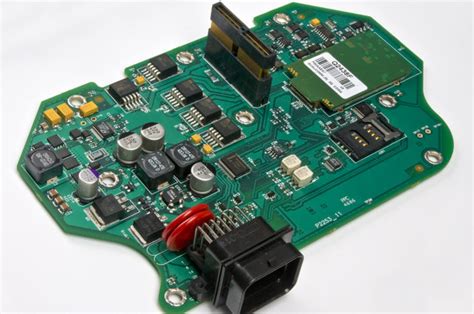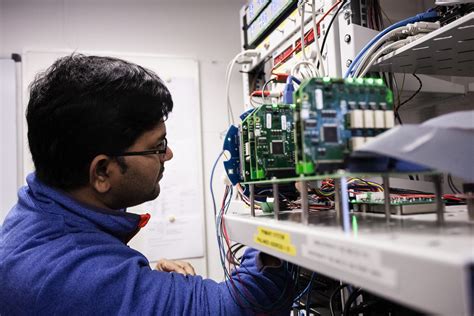The Importance of Embedded Software Engineers in the Automotive Industry
Embedded software engineers are essential to the development of modern vehicles, as they design, develop, and maintain the software that controls various aspects of a car’s functionality. From engine control units (ECUs) and advanced driver assistance systems (ADAS) to infotainment systems and vehicle-to-everything (V2X) communication, embedded software is the backbone of today’s automotive technology.
The increasing complexity of automotive systems has led to a surge in demand for skilled embedded software engineers. According to a report by the Bureau of Labor Statistics, employment of software developers, including embedded software engineers, is projected to grow 22% from 2019 to 2029, much faster than the average for all occupations.
Key Skills for Automotive Embedded Software Engineers
To excel in the automotive industry, embedded software engineers must possess a unique combination of technical skills and domain knowledge. Some of the essential skills include:
- Proficiency in programming languages such as C, C++, and Assembly
- Knowledge of real-time operating systems (RTOS) and embedded systems architecture
- Familiarity with automotive communication protocols, such as CAN, LIN, and FlexRay
- Understanding of safety-critical systems and functional safety standards (e.g., ISO 26262)
- Experience with model-based design and testing methodologies
- Strong problem-solving and debugging skills
| Skill | Importance |
|---|---|
| Programming languages | High |
| RTOS and embedded systems | High |
| Automotive communication protocols | Medium |
| Safety-critical systems and standards | High |
| Model-based design and testing | Medium |
| Problem-solving and debugging | High |
The Race to Attract Top Talent
As the demand for automotive embedded software engineers grows, companies are competing fiercely to attract and retain top talent. This competition has led to a range of strategies designed to entice the best engineers, including:
Competitive Compensation Packages
Companies are offering attractive salary and benefits packages to lure embedded software engineers. According to a survey by the Embedded Systems Engineering Association, the median annual salary for embedded software engineers in the automotive industry is $95,000, with top earners making over $150,000 per year.
Professional Development Opportunities
Many automotive companies are investing in professional development programs to help their embedded software engineers stay up-to-date with the latest technologies and industry trends. These programs may include in-house training, conference attendance, and support for continuing education.
Collaborative Work Environments
Automotive companies are creating collaborative work environments that foster innovation and creativity. By encouraging cross-functional teamwork and providing state-of-the-art facilities, these companies aim to attract engineers who thrive in dynamic, fast-paced settings.
Exciting Projects and Cutting-Edge Technologies
The automotive industry is at the forefront of technological innovation, offering embedded software engineers the opportunity to work on groundbreaking projects. From autonomous driving systems to advanced in-vehicle experiences, engineers have the chance to make a significant impact on the future of transportation.

The Impact of the Talent Shortage
Despite the efforts of automotive companies to attract embedded software engineers, the industry faces a significant talent shortage. This shortage can be attributed to several factors, including:
- The rapid pace of technological advancement, which has outpaced the supply of qualified engineers
- The competition for talent from other industries, such as consumer electronics and aerospace
- The limited pool of graduates with the necessary skills and experience
- The growing complexity of automotive systems, which requires increasingly specialized expertise
The talent shortage has several implications for the automotive industry:
Increased Development Costs
As companies compete for a limited pool of engineers, they may need to offer higher salaries and more comprehensive benefits packages, driving up development costs.
Longer Time-to-Market
A shortage of qualified engineers can lead to slower development cycles and longer time-to-market for new features and products.
Compromised Quality
When companies are unable to hire enough experienced engineers, they may be forced to rely on less skilled or less experienced personnel, potentially compromising the quality of their products.

Strategies for Addressing the Talent Shortage
To mitigate the impact of the talent shortage, automotive companies are employing various strategies:
Investing in Education and Training
Companies are partnering with universities and technical schools to develop curricula that align with the needs of the automotive industry. By investing in education and training programs, these companies aim to expand the pool of qualified engineers.
Embracing Remote Work
The COVID-19 pandemic has accelerated the adoption of remote work, and many automotive companies are now open to hiring embedded software engineers who work remotely. This approach allows companies to tap into a broader talent pool and attract engineers who may not be willing to relocate.
Collaborating with Industry Partners
Automotive companies are collaborating with industry partners, such as suppliers and technology firms, to share knowledge and resources. By working together, these companies can more effectively address the challenges posed by the talent shortage.
Focusing on Retention
In addition to attracting new talent, automotive companies are also focusing on retaining their existing embedded software engineers. By providing competitive compensation, opportunities for growth, and a supportive work environment, these companies aim to reduce turnover and maintain a stable workforce.

The Future of Automotive Embedded Software Engineering
As the automotive industry continues to evolve, the role of embedded software engineers will become increasingly critical. Some of the key trends shaping the future of automotive embedded software engineering include:
The Rise of Autonomous Vehicles
The development of autonomous vehicles will require even more sophisticated embedded software systems, creating new opportunities for engineers with expertise in machine learning, computer vision, and sensor fusion.
The Growth of Connected Services
The proliferation of connected services, such as over-the-air updates and in-vehicle e-commerce, will drive demand for embedded software engineers with experience in cloud computing, cybersecurity, and user experience design.
The Transition to Electric Vehicles
As the automotive industry shifts towards electric vehicles, embedded software engineers will play a crucial role in developing the complex battery management systems and power electronics that underpin these vehicles.
Frequently Asked Questions (FAQ)
-
What educational background is required to become an automotive embedded software engineer?
Most automotive embedded software engineers have a bachelor’s degree in computer science, electrical engineering, or a related field. Some positions may require a master’s degree or specialized certifications. -
What programming languages are most commonly used in automotive embedded software development?
C and C++ are the most widely used programming languages in automotive embedded software development, due to their performance and low-level control. Assembly language is also used in some cases, particularly for safety-critical systems. -
What is the job outlook for automotive embedded software engineers?
The job outlook for automotive embedded software engineers is very positive, with high demand and competitive salaries. The Bureau of Labor Statistics projects strong growth in software development jobs over the next decade, and the automotive industry is expected to be a major driver of this growth. -
What are some of the biggest challenges facing automotive embedded software engineers?
Some of the biggest challenges include the increasing complexity of automotive systems, the need to ensure functional safety and security, and the pressure to develop innovative features while meeting strict time-to-market deadlines. -
How can aspiring automotive embedded software engineers prepare for a career in this field?
Aspiring engineers should focus on developing strong programming skills, particularly in C and C++, and gaining experience with embedded systems and real-time operating systems. Internships or co-op positions in the automotive industry can provide valuable hands-on experience and networking opportunities. Additionally, staying up-to-date with the latest industry trends and technologies is essential for success in this fast-paced field.
In conclusion, the race to hire embedded software engineers in the automotive industry is a testament to the critical role these professionals play in shaping the future of transportation. As the demand for their skills continues to grow, companies must adapt their strategies to attract, develop, and retain top talent. By investing in education, embracing new work models, and fostering innovation, the automotive industry can position itself for success in the era of connected, autonomous, and electric vehicles.

No responses yet